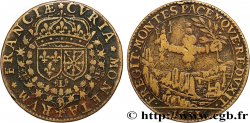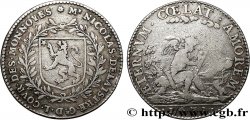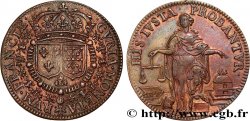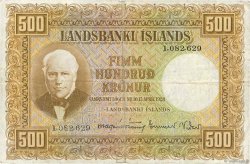fjt_708979 - COUR DES MONNAIES DE PARIS HENRI III 1580
65.00 €(Approx. 74.10$ | 55.90£)
Quantity
Add to your cart

Type : HENRI III
Date: 1580
Metal : brass
Diameter : 28 mm
Orientation dies : 6 h.
Weight : 4,06 g.
Edge : lisse
Rarity : R2
Obverse
Obverse legend : CURIA. MONETAR. FRANCIAE.
Obverse description : Écu de France couronné et entouré du collier de l'ordre de St Michel.
Obverse translation : (Cour des monnaies de France).
Reverse
Reverse legend : PATET. FALLACIA. TANDEM ; À L'EXERGUE : 1580.
Reverse description : Archimède debout à gauche, fait l'expérience de la couronne du roi Hiéron dans l'eau.
Reverse translation : Il découvre cependant le principe du phénomène.
Commentary
Au XVIe siècle, la Cour des monnaies de Paris fit frapper une grande diversité de jetons dont les motifs changeaient presque chaque année. L'iconographie du revers fait allusion à la découverte de l'hydrostatique par Archimède et à son fameux théorème : le roi de Syracuse, Hiéron, soupçonnant un orfèvre de lui avoir fabriqué une couronne d'or, frauduleusement alliée d'argent, demanda à Archimède de déterminer s'il y avait eu fraude sans détruire la couronne. Après maintes réflexions il trouva la solution dans sa baignoire. Le revers représente Archimède trempant la couronne de Hiéron dans une bassine afin d'en déterminer la densité.







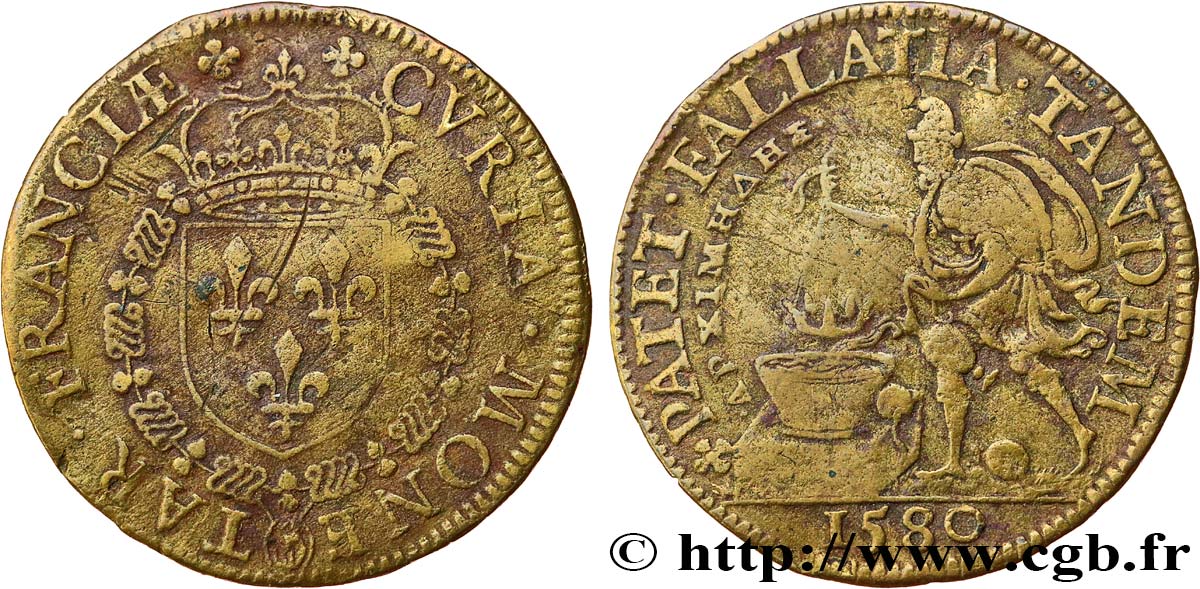
 Report a mistake
Report a mistake Print the page
Print the page Share my selection
Share my selection Ask a question
Ask a question Consign / sell
Consign / sell
 Full data
Full data